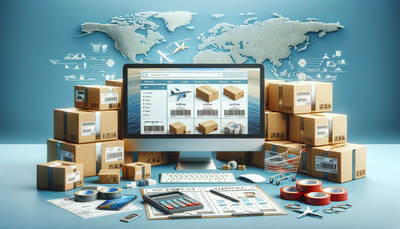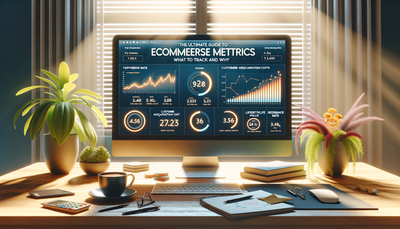Tips for Keeping Your Small Business Secure
Small business owners must take cybersecurity seriously to protect their finances and customer data. This guide will help small business owners learn the best tips for keeping their operations secure.Table of Contents:

Set Up Firewalls
Setting up firewalls for your small business is a must in order to keep your data secure. Firewalls work as a barrier between your internal network and the outside world, ensuring that only the necessary traffic gets through and blocking suspicious traffic.When choosing the right firewall for your business, take into account how many devices you need to protect and what kinds of data you're sending and receiving. Make sure that it's configured correctly and monitored regularly to ensure that it continues to provide protection from outside threats. You can even get managed firewall services to make sure that you're always up to date with the latest security standards.
Finally, make sure to back up all your data in case of a firewall breach. This way, you can restore your systems quickly and be back in business in no time.
Do you need a website? Want to build a website but don't know where to start? Our website builder is the perfect solution. Easy to use, and with the ability to customize to fit your business needs, you can have a professional website in no time.
Educate Employees
It is essential to educate employees about security protocol for a small business. Employees should understand the importance of changing passwords regularly and limiting access to company data as much as possible. They should also be encouraged to inform management of any suspicious emails or questionable activities related to the business. Encourage employees to sign up for corporate training on cyber security, since this is becoming increasingly important as hackers become more sophisticated. Finally, make sure all important data is backed up securely, using secure cloud storage or another form of safe backup.Manage Access
Managing access is an important security feature to help protect your small business. A secure access control system should be implemented with the right tools and access levels to provide the right security for your company. Make sure you have user authentication, secure passwords and access restrictions for all users. Ensure each user only has the amount of access needed for their particular role. Monitor the access levels and make sure the access privileges are regularly reviewed and updated. Consider using two-factor authentication to help protect your systems from unauthorized log-ins. Together, these measures will help you keep your small business secure and your customers’ data safe. Building a website with SITE123 is easy
Secure Platforms and Services
Small businesses must have secure platforms and services in order to protect their data from cyber threats and other malicious activity. Investing in a secure platform that utilizes industry-standard protocols, and implements data security protocols can help protect your business information from cybercriminals. Additionally, leveraging cloud computing systems, virtual private networks (VPNs) and firewalls to protect your data can help ensure that your business information is secure. You should also consider using two-factor authentication (2FA) and encryption technology, which can help prevent data theft and reduce the risk of malicious interference. Finally, implementing secure monitoring and alert technologies can help you detect any suspicious activity and respond quickly to address security issues.Employ Antivirus Software
Antivirus software should be one of the most important tools on your business’s computer systems. It is vital to invest in good quality antivirus software to protect your network and computers from external threats such as viruses, malware, and spyware. Having the right virus protection in place can help prevent hacking attempts, as well as catching malicious software before it has a chance to even get onto your systems. Antivirus software should be updated regularly to ensure that your computers have the most up-to-date protection. It is also important to ensure that all of your business’s computers are equipped with the same anti-virus software. Having varying anti-virus software on different machines can create compatibility issues.Encrypt Data
Encrypting your data is one of the best things you can do to keep your small business secure. Encryption involves using specialized software to encode sensitive information and make it unreadable to anyone without the correct key. This ensures that only those who have the correct authorization can view the data. Making sure your business data is encrypted provides an extra layer of security and prevents unauthorized access to confidential information. Make sure to update and patch your encryption software regularly to keep your data secure.Back Up Important Data
Backing up important data is one of the best ways to ensure your small business is secure. It is important to perform regular backups of your data and store them on a secure platform, such as an external server or a cloud-based storage service. Backups should include both company files and any other sensitive data, like customer records or financial information. Keeping backups offsite will also allow you to recover your data in case of a physical disaster, like a fire or flood. With the right data backup system in place, you can rest assured that your important business data is always secure.Monitor Your Network
Monitoring your small business network is essential in order to maintain a secure environment. Your network should be monitored both internally, to ensure that any malicious activities are detected quickly, as well as externally, to detect external threats. Ensure that all connected devices are updated and that anti-malware and antivirus software is installed and regularly updated. Place a strong focus on patching any vulnerabilities before attackers can get in.Using web filtering solutions to identify and block unwanted traffic can also help to protect your small business network. This can help prevent malicious content and applications from entering the network. Additionally, a firewall should be used to block unauthorized access from the outside. Lastly, log management can be utilized to produce network reports and detect potential intrusion attempts.





